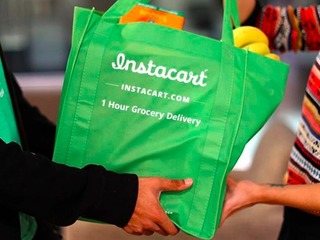DUOS expands AI capabilities to help seniors apply for assistance programs
It will complete and submit forms, and integrate with state benefit systems
Read more... Over 10% of households in the United States have low or very low food security; 33.8 million people live in food-insecure households. That includes 5 million children, in which food insecurity has been associated with increased risks of some birth defects, anemia, lower nutrient intakes, cognitive problems, aggression and anxiety, asthma, behavioral problems, depression, suicide ideation, and worse oral health.
Over 10% of households in the United States have low or very low food security; 33.8 million people live in food-insecure households. That includes 5 million children, in which food insecurity has been associated with increased risks of some birth defects, anemia, lower nutrient intakes, cognitive problems, aggression and anxiety, asthma, behavioral problems, depression, suicide ideation, and worse oral health.
To help tackle this problem, Instacart announced a new initiative called Instacart Health, which is aimed at making sure that every person has access to nutritious food. The new program was launched in coordination with the White House Conference on Hunger, Nutrition and Health on Wednesday, in which Instacart CEO Fidji Simo participated.
Instacart Health involves a series of new products, partnerships, and policy commitments, which the company says "underscores the critical intersection of food and health, the important role that private sector companies can play, and the need for public-private sector partnership."
One of those new products is Fresh Funds, which allow organizations, including nonprofits, insurance companies, and employers, to provide funds for people to buy nutritious food from grocery retailers on the Instacart App. The organizations will be able to dictate and limit spend to certain food categories as a way to incentivize healthy habits, while also providing access to cost-prohibitive healthy foods.
Instacart will be launching Fresh Funds pilots in the coming weeks, including one with Partnership for a Healthier America; that will start in Indianapolis, with plans to expand it nationwide starting next year.
Another new product being launched is called Care Carts, which are designed to give healthcare providers and caregivers the ability to order groceries on behalf of someone else; for example, a clinician might want to deliver groceries for a patient’s prescribed meal plan.
Organizations and services that are using Care Carts include digital nutrition platform Good Measures in partnership with WellCare of Kentucky; hospital-at-home solution provider Medically Home; food solutions and care management platform NourishedRx in partnership with a number of health plans; and digital nutrition services Season Health and Foodsmart.
A third product new is called Health Tags, which let customers view up to 23 item-level labels, including low-salt, low-sugar, keto, gluten-free, while they shop on Instacart. Health tags are now enabled across 500,000 items in Instacart’s catalog.
On top of its new products, Instacart announced some partnerships, including with publishers Dotdash Meredith and Hearst Magazines to create a library of over 3,000 recipes from Dotdash Meredith titles that include EatingWell, Parents, and All Recipes, and Hearst titles, such as Delish.
Instacart also said it will work with the USDA to expand EBT SNAP payment access to its grocery partners in all 50 states in 2023, with the goal of expanding access to all Instacart grocery partners by 2030. The company is also making it easy for consumers to shop with EBT SNAP benefits inside the store with new technology available to retailers that lets consumers easily scan a product and find out if it’s eligible for EBT SNAP benefits.
Finally, Instacart unveiled its Instacart Health Policy Agenda, which outlines the company’s top three policy priorities and new advocacy commitments to help expand access to nutritious food and improve health outcomes. That will involve working with policymakers, researchers, nonprofit leaders, private sector partners, and others to help shape and enact policies at the federal, state, and local level with the aim of modernizing food assistance programs to increase equitable access to nutritious food; increasing the availability of affordable, nutritious food in underserved urban and rural areas; and providing equitable access to health-tailored groceries and food prescription programs.
“Instacart has become a staple in millions of households, which puts us at the heart of the relationship that people have with food, and therefore, their health. We have a responsibility to use the power of our platform, products and partnerships to expand access to nutritious food and improve health outcomes,” Simo said in a statement.
“Our nation’s hunger and health problems are complex and require cross-sector collaboration. At Instacart, we’re building the technologies that can help many organizations – from healthcare providers, insurers, nonprofits, employers, and health experts – give more people access to fresh, nutritious foods with dignity, speed, and convenience."
(Image source: instacart.com)
It will complete and submit forms, and integrate with state benefit systems
Read more...The bill would require a report on how these industries use AI to valuate homes and underwrite loans
Read more...The artists wrote an open letter accusing OpenAI of misleading and using them
Read more...
